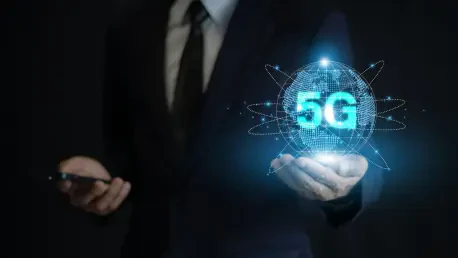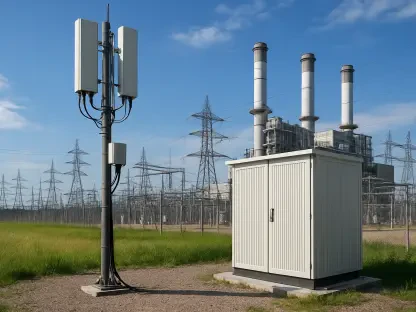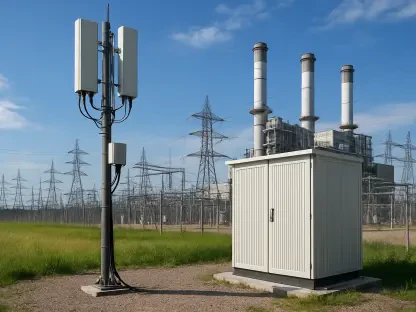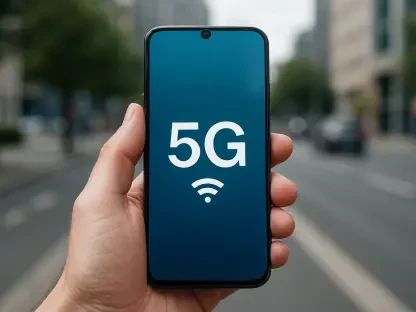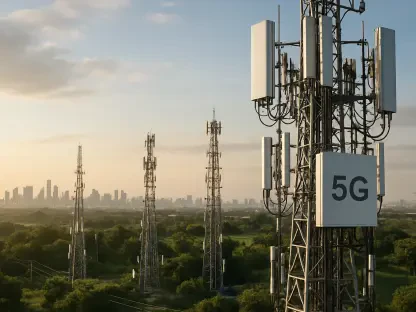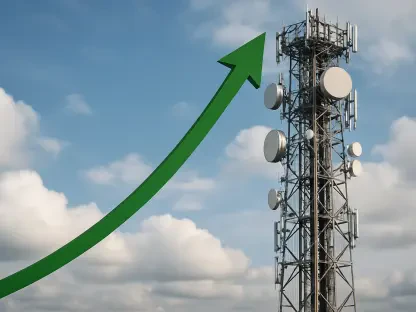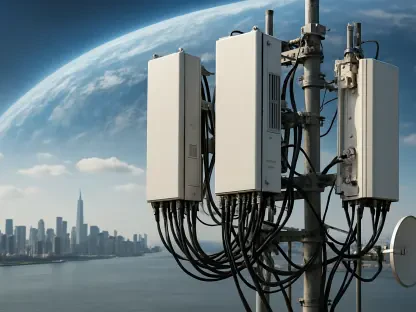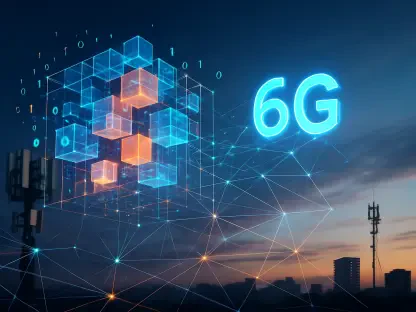The deployment of the first full-scale standalone private 5G network for a municipal utility in the United States marks a significant leap for Memphis Light, Gas and Water (MLGW). In partnership with Nokia, MLGW’s initiative aims to rejuvenate the utility’s communication systems. It covers electricity, gas, and water services for over 420,000 Tennessee customers. At its core, this development aligns with MLGW’s grid modernization strategy, focusing on minimizing outages and hastening service restoration. This piece endeavors to explore the impact of this technological advancement on utility operations and the broader implication for the sector.
Enhancing Operational Efficiency
Real-Time Communication and Data Connectivity
The integration of 5G technology into MLGW’s operational framework brings with it an impressive array of capabilities aimed at enhancing efficiency. Real-time communication is critical in managing utility services, allowing instantaneous data exchange that significantly improves decision-making processes. The ability to access and interpret data instantly facilitates the automation of various functions, including meter readings and grid monitoring. This automation reduces manual labor and minimizes human error, leading to more accurate and timely services.
Moreover, the adoption of 5G technology simplifies remote field operations, providing utility workers with state-of-the-art tools to perform their tasks more efficiently. The introduction of these capabilities means that operational managers can optimize resource allocation, improve workflow coordination, and ultimately provide better service to end customers. The seamless connectivity enabled by 5G ensures these systems remain in sync, providing a reliable and consistent flow of data crucial for optimizing utility operations.
Supporting Emerging Technologies
Doug McGowen, MLGW’s president and CEO, has emphasized the significance of 5G technology in supporting future technological innovations. The infrastructure put in place will not only enhance current operations but also lay the groundwork for supporting emerging technologies such as electric vehicles and battery storage solutions. It is an essential step towards developing a smarter, more resilient grid infrastructure. MLGW’s planned integration of these emerging technologies is pivotal for the utility’s sustainability goals. The utilization of 5G technology will ensure a more adaptive grid system is established, capable of accommodating the demands of next-generation devices while maintaining service quality.
The capacity to integrate electric vehicles and battery storage within the grid infrastructure demonstrates MLGW’s commitment to sustainability and climate-conscious initiatives. These advancements could significantly reduce carbon emissions, aligning with broader environmental goals. As 5G technology continues to evolve, the utility sector’s capacity to support emerging technologies will progressively expand, fostering a culture of innovation and sustainability.
Broader Utility Sector Trends
Role of Private Wireless Technologies
MLGW’s venture into a private 5G network is a part of a burgeoning trend within the utility sector, where private wireless technologies are becoming instrumental in achieving grid modernization and sustainability objectives. The network implemented by MLGW serves as an exemplary model for other utilities considering transitioning to more advanced communication systems. Private networks like these enable utilities to maintain control over data transmission and enhance cybersecurity measures, providing a robust framework for future developments.
The successful implementation of such networks could spur further investments in similar technologies across the sector. Utilities globally are recognizing private wireless systems’ potential benefits, such as improved operational efficiency, better customer service, and enhanced integration capabilities. This technology opens up new avenues for innovation and could lead to the development of more sophisticated grid systems.
Other Industry Innovations
In addition to MLGW, other utilities in North America are making strides towards adopting similar innovations. Southern California Edison (SCE) is focusing on LTE technology to manage real-time monitoring and asset management, with plans for future 5G upgrades. Their approach capitalizes on the Citizens Broadband Radio Service (CBRS) spectrum to increase operational capacity. SCE’s initiative underscores the wider industry’s desire to harness wireless technologies’ potential benefits.
Moreover, Xcel Energy’s investment in private LTE networks is centered on enriching grid automation and facilitating renewable energy integration across multiple states. These efforts epitomize the transformative impact that advanced communication technologies could have on the industry. Nokia’s experience in deploying such solutions underscores the strategic benefits of leveraging established expertise to guide technological transformations in utility services.
Expanding Beyond Utilities
Private 5G Networks in Smart Cities
The application of private 5G networks extends beyond utilities, marking significant progress in smart city initiatives. Projects in cities like Brownsville, Texas, showcase how private 5G technologies can enhance public safety and operational efficiency. Collaborations between tech giants such as Nokia and NTT DATA have resulted in tailored solutions designed for urban environments, setting a benchmark for future developments.
Within these smart city initiatives, 5G technology is being leveraged to create intelligent and efficient urban infrastructures capable of supporting diverse needs. Enhanced connectivity enables better management of urban resources, improves traffic management systems, and bolsters emergency response capabilities. The successful implementation of these networks in urban settings further highlights the transformative potential of 5G technologies across various sectors.
Future Prospects and Considerations
The introduction of the first full-scale standalone private 5G network for a municipal utility in the United States signifies a major advancement for Memphis Light, Gas and Water (MLGW). Collaborating with Nokia, MLGW seeks to modernize its communication systems as part of a broader strategy to enhance grid operations. This groundbreaking initiative will upgrade electricity, gas, and water services for more than 420,000 customers in Tennessee. The primary objective of this development is to support MLGW’s grid modernization efforts by reducing outages and expediting service restoration. In essence, this move represents a significant step in integrating cutting-edge technology into utility operations, which can potentially transform service delivery efficiency and reliability. By leveraging the capabilities of 5G, MLGW aims to set a precedent in the utility sector, paving the way for similar advancements. This endeavor not only improves resource management but also enhances customer satisfaction and operational efficiency.
